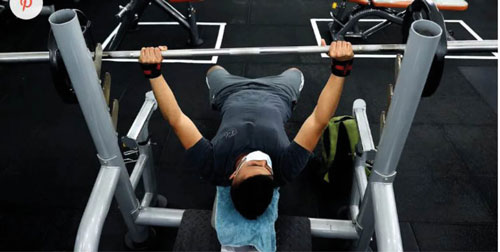New research finds that exercising after a vaccine could boost antibodies. Brendon Thorne/Bloomberg via Getty Images
A recent study suggests that exercising after getting a vaccine can boost antibodies.
Iowa State University researchers found that light- to moderate-intensity exercise immediately after a flu or COVID-19 shot may increase protection against infection.
Study participants produced more antibodies over the next 4 weeks post-vaccination, and they did not report increased side effects from the vaccines.
These results indicate that exercise after vaccination could be a way to improve antibody response to a vaccine among people able to exercise for at least 45 minutes.
A new study suggests that one 90-minute exercise session can boost immune response in people who have just taken a flu or COVID-19 vaccine.
In human and animal studies, a single episode of light or moderately vigorous activity after a flu or COVID-19 vaccine shot increased antibodies up to 4 weeks.Additionally, exercise does not appear to increase adverse effects from a shot.
Marian Kohut, Ph.D., professor of kinesiology at Iowa State University’s Navovaccine Institute, led a team of researchers to explore this effect. Postdoctoral, graduate, and undergraduate students contributed to the work.
She and her co-authors published their findings in the journal Brain, Behavior, and Immunity.
In an exclusive interview with Medical News Today, Dr. Kohut and postdoctoral researcher Tyanez Jones, Ph.D., shared:
“As far as we know, our findings are the first of their kind for evaluating exercise response on the COVID-19 vaccine. [They are] the first to show that light [to moderate] intensity, long-duration exercise enhances antibody response for the COVID-19 vaccine.”Exercise and immunity Several studies have established that people who exercise before getting a vaccine have a higher antibody response.
One hypothesis for this is that exercise creates acute stress, which sparks an inflammatory response.
This response may stimulate the production of interferons and antibodies, proteins that fight foreign particles in microbes such as viruses.
Another possible reason is that exercise boosts blood and lymph flow, which promotes immune cell circulation.
Examining the effect of exercise The team studied how 90 minutes of cycling, outdoor walking, or jogging affected antibody response.










